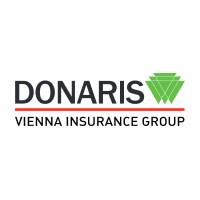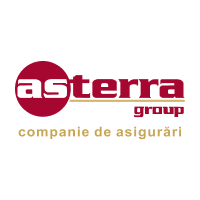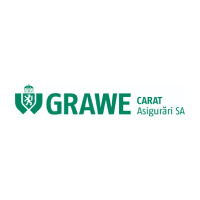
Insurance of personal and real estate property

about
Maib offers the Property Insurance service designed to protect your company’s real estate assets against a wide range of risks that could impact your business.
Advantages of insurance:
- comprehensive safety and protection of property against a wide range of risk
- flexibility and efficiency in contract conclusion
- reliable and prompt compensation
- accessibility
Insured risks * (with the possibility of choosing the type of risk):
- fire
- explosion
- storm
- natural phenomena: lightning, strike, whirlwind, hurricane, flood, groundwater, ice movement, earthquake, freezing rain, heavy snowfall, landslides
- water action
- external actions
- illicit actions of third parties: intentional damage or destruction of insured property or its parts, theft (burglary, robbery, mugging)
- breaking of windows, display cases, and other similar installations
 |
 |
|
|
|
real estate property
The following goods can be insured:
- residential constructions: apartments, individual houses for living, habitable rooms in dormitories, vacation homes, villas;
- non-residential constructions: buildings (such as production, administrative, commercial, socio-cultural, and public utility buildings); structures (such as towers, pylons, aggregates, and other production and technological installations); outbuildings (such as garages, sheds, etc.); separate rooms (such as workshops, laboratories, offices, etc.); warehouses;
- unfinished construction objects: both interior and exterior parts of buildings;
- land: land designated for construction, agricultural, or other uses as established by legislation, excluding any other attached components;
- other real estate property: perennial plantations, except for the yield from agricultural crops, or other assets in which the Insured (Insurance Beneficiary) has an insurable financial interest;
Exclusions:
- property designated for demolition or major repairs, as well as property with depreciation (wear and tear) exceeding 60% of its actual value in new condition at the time of the Contract's conclusion;
- buildings/structures or their modernization, extensions or vertical or horizontal extensions carried out without a construction permit, as well as buildings or other structures that have not been put into use;
- temporary structures located outside the designated building zones of municipalities (e.g., shanties, shelters, huts, etc.);
- buildings constructed in areas where such construction is prohibited by authorities;
- property situated in areas at risk of landslide;
- buildings and structures whose construction elements and engineering systems are in a damaged/advanced state of deterioration, unoccupied, or abandoned, and which can no longer be used for their intended purpose;
- degraded or ruined annexes (such as undersized foundations showing signs of settlement, cracks in load-bearing walls and floors, damaged interior and exterior plaster, broken gutters and downspouts, inadequate roofing and trusses, cracked chimneys, defective water and sewage systems, makeshift electrical installations, improvised heating stoves, etc.).
personal property
The following goods can be insured:
- household goods (appliances, furniture, etc.)
- interior items: office furniture, office equipment, armored cabinets, safes, fixed assets and similar inventory items, audiovisual equipment, household appliances, and other inventory goods used in business operations
- engineering and technological production machinery, commercial machinery, and other equipment: machines, tools, equipment, aggregates, utensils, stands, lifting equipment, communication installations, systems, electronic computing devices, lathes, power transmission machinery, reservoirs, weighing devices, electrical power installations, technological pipes, and electrical cables servicing machines, equipment, engines, and similar items
- technical/agricultural inventory and equipment: non-registered means of traction and transport such as forklifts, electric stackers, and other lifting equipment intended for moving circulating items within the insured premises (excluding non-registered vehicles for Auto-Moto circuits, bicycles, scooters, modified food-truck vehicles, and similar items); vehicles and automobiles in storage, exhibition, or assembly conditions
- circulating means (Stock of goods): raw materials, materials, semi-finished products, and finished products, goods in the course of manufacture or in storage, consumables, packaging, excluding explosive and flammable materials and special goods.
Exclusions:
- property located within the insured premises for which the Insured does not hold a legitimate interest against damage based on ownership rights (possession, use, disposal), mandate management, lease, leasehold, pledge, storage, consignment, sale, or other legal grounds.
- personal property inside buildings and structures whose construction elements and engineering systems are in a damaged state.
- goods that are withdrawn from circulation or limited in use in accordance with the current legislation of the Republic of Moldova
- goods located in areas at risk of landslides, subsidence, flooding, or other natural disasters, as well as in areas affected by military actions, from the moment of official notification of such risk, if the notification was issued before the insurance contract was concluded;
- cash, coins, bullion, savings books, checkbooks, securities, credit documents, deeds, plans, business registers, filing cabinets, manuscripts, plans, sketches, and other documents, accounting and business records, drawings, stamps, and assets belonging to national heritage
- coins, valuable paintings, engravings, prints, icons, statues, masks, dolls, tapestries, embroideries, tapestries, medals, watches, stamps, and postal marks, letters and other rare documents, rare art objects and antiques, and other unique items
- models, prototypes, teaching materials, samples, molds, jewelry, pearls, precious and semi-precious stones, items made of precious metals (gold, silver, platinum), paintings, sculptures, collections, trophies, cups, diplomas, numismatics, or other items with artistic, scientific, or historical value
- information (databases, software, licenses, etc) stored on technical information carriers of computerized and analogue systems, especially films and magnetic tapes, magnetic disks, memory blocks, magnetic recordings, digital recordings, including components of computing systems, as well as other information storage media intended for automated processing, etc.
- goods located on open balconies or terraces, under sheds, or exposed to the open sky, with regard to risks of theft and weather phenomena
- transport vehicles, mobile construction equipment, agricultural machinery, or other machinery; motorcycles, trailers, and traction vehicles (excluding transport means that are under permanent guard in parking areas with security, garages, hangars, and other enclosed spaces (buildings, structures)
- any kind of aerial transport means, railway wagons, registered or registrable vehicles and trailers, and watercraft
- animals and birds, crops from agricultural fields
- explosive substances and ammunition
- windows, mirrors, or any other breakable items that are broken, cracked, chipped, peeling, or otherwise defective at the time of insurance
- other personal property:
- beverages of any kind, food, cereals; detergents, cosmetics, and similar items; fuels, oils, paints, and similar items, which do not qualify as stock-in-trade
- building materials; spare parts and components of any kind, consumables for tools and equipment, including those used in displays; harvests, timber, and food and agricultural products, which do not qualify as stock-in-trade
required documents
- identification documents of the Insured (property owner) and the Policyholder (the person who concludes the insurance contract, if different from the property owner);
- a list of the insured items with their value per unit;
- documents confirming the cost of the goods proposed for insurance – valuation report*, purchase contracts, invoices, receipts, etc.;
- as the case may be, other documents requested by the Insurer (photos, video, etc.).
The rate is set individually, based on the level of the risk, type, value, and complexity of the property
|
property type |
amount |
Insurance premium ≃ |
deductible** |
|
land |
- |
≃0,01% |
for partial damage – from 1% of the insured amount for total damage from 5% of the insured amount |
|
real estate property |
greater than 3 000 001 MDL |
≃0,06% |
|
|
between 1 000 000 and 3 000 000 MDL |
≃0,08% |
||
|
less than 1 000 000 MDL |
≃0,10% |
||
|
personal property |
- |
≃0,12% |
*Insured amount
- the Insurer determines it in agreement with the Insured. It constitutes the maximum limit of the insurance compensation that the Insurer must pay to the Insured/Beneficiary in the event of the covered event specified in the insurance contract.
**Excess
- the insurance contract may include an excess, which represents the part of the loss the insurer does not compensate and is established either as a fixed amount or a percentage of the insurance compensation or the insured amount.
In the event of the insured incident, the Insured shall immediately:
- notify the competent authorities, depending on the case (firefighters, police, or other investigative bodies), to prepare reports regarding the causes and circumstances of the incident, the damages caused, and the people responsible for the incident;
- take measures to limit the damages, according to the circumstances, including rescuing, preserving, and protecting the remaining insured property and preventing the remaining insured property and preventing further deterioration;
- notify the Insurer in writing about the occurrence of the insured event within 48 hours from the event or from the moment it becomes known, providing information regarding the date, location, causes, and circumstances of the insured event, as well as the nature and extent of the damage, to allow the Insurer to carry out the assessment procedure and damage evaluation.
|
(+373-22) 265 700 – BUNURI |
office@general.md; despagubiri@general.md (+373-22) 784 109 – BUNURI |
|
office@asterra.md; despagubiri@asterra.md (+373-22) 221 758 – BUNURI |
office@grawe.md; property@grawe.md (+373-22) 225 632 sau (+373) 78 350050 – BUNURI |


